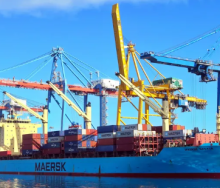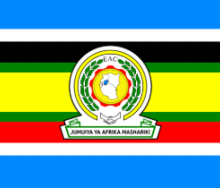Drought in the Northern Cape has taken the province’s agricultural sector to the edge of collapse and pleas are mounting for the government to declare the region a “disaster area”.
According to Nicol Jansen, chairman of Agri Northern Cape, many of the district municipalities simply don’t have the financial wherewithal to assist farmers affected by devastating drought conditions.
Disaster officials are there to assist struggling farmers but, in comparison to the Western Cape where aid includes municipal budget allocations for drought conditions, farmers in the Northern Cape are left to their own devices.
Although a government farm near Upington has pledged to help with the provision of livestock feed, farmers have to transport it themselves.
In many instances this is simply not possible.
And the number of farmers incapable of affording feed within range is also falling fast.
In the meantime the effect that the drought is having on farms across the province is spreading faster than aid forthcoming from the Department of Agriculture, Forestry and Fisheries (Daff).
Hester Obermeyer, a coordinator for livestock feed relief from Gift of the Givers, has said that the Northern Cape’s agricultural community is “heading for disaster”.
She said many communities, already impoverished by harsh economic conditions compounded by unemployment, expected an influx of farm labourers who would be laid off by struggling farmers.
She said some areas were particularly affected, such as Sutherland, where the usual head tally of livestock dropped from around 400 000 in general to 96 000.
Jansen added that not much relief was expected for the next financial year.
He said it was expected that finance minister Pravin Gordhan would focus on struggling parastatals such as Eskom and SAA, and that that would mean less financial aid, if any, would be aside for the farming community.
Obermeyer pleaded for help from across South Africa.
Should farms in the Northern Cape collapse because of the drought, its socio-economic effect would ripple out further than the province’s borders, she said.













